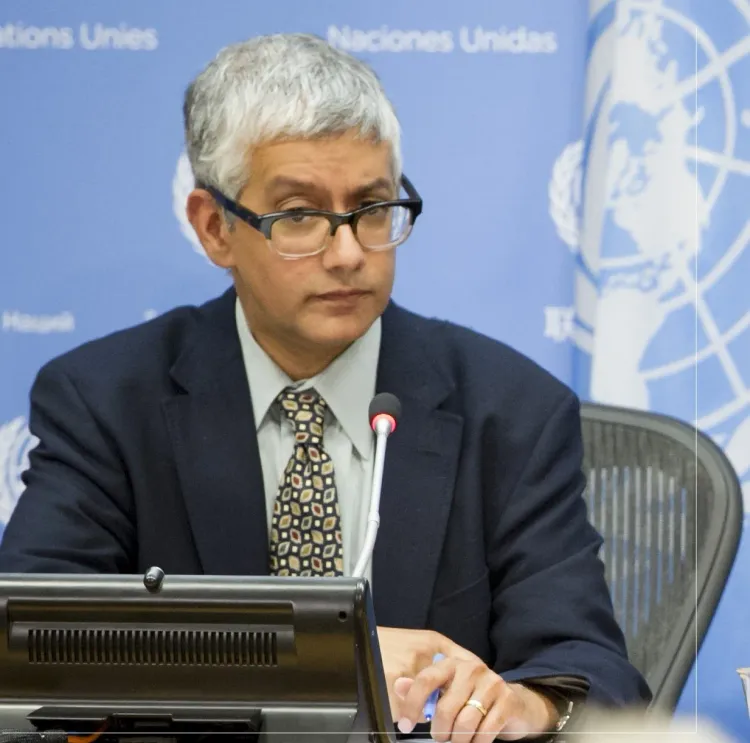What Did Guterres Say to Sharif About India and Pakistan's Tensions?

Synopsis
Key Takeaways
- Guterres commends India and Pakistan for reducing tensions.
- The ceasefire agreement is a significant step toward peace.
- Guterres remains available to assist in future dialogues.
- Both countries are encouraged to address unresolved issues.
- The UN emphasizes the need for restraint to avoid conflict.
United Nations, May 15 (NationPress) The United Nations Secretary-General, Antonio Guterres, has praised both India and Pakistan for their initiatives aimed at diminishing tensions during a phone call with Pakistan's Prime Minister Shehbaz Sharif, as reported by a UN spokesperson.
In their discussion, Guterres expressed his satisfaction with the ceasefire agreement established between India and Pakistan, commending both parties for their proactive measures to alleviate tensions, according to Deputy Spokesperson Farhan Haq on Wednesday.
They explored potential next steps, with Guterres reaffirming his readiness to assist as needed.
At the time of the call, Guterres was in Berlin for a Ministerial Meeting focused on Peacekeeping.
This marked Sharif's third dialogue with Guterres within a fortnight.
With the ceasefire maintaining its strength, Guterres's Spokesperson Stephane Dujarric remarked on Tuesday, "We are in a more favorable situation now."
"We aspire for the ceasefire to persist, and we hope both sides will leverage this opportunity to address the unresolved issues between them," he elaborated during a briefing.
Responding to a statement from a Palestinian journalist who criticized Indian Prime Minister Narendra Modi, Dujarric defended the ceasefire's stability, stating, "The ceasefire is intact," despite concerns about its fragility.
The agreement to conclude four days of conflict was achieved on Saturday following a conversation between the Directorate General of Military Operations (DGMO) of Pakistan and their Indian counterpart.
India had conducted targeted strikes on terrorist infrastructure within Pakistan and the contested territory of Kashmir last Wednesday, as retaliation for the previous month's tragic incident in Pahalgam that resulted in 26 fatalities caused by The Resistance Front, linked to Lashkar-e-Toiba.
This led to Islamabad launching attacks on India, escalating the situation further.
Shortly after the ceasefire agreement was reached, Guterres praised it as a constructive measure towards halting the ongoing hostilities and calming tensions.
Earlier on Tuesday, as tensions rose, the UN Chief urged for restraint, stating, "The world cannot afford a military confrontation between India and Pakistan."










